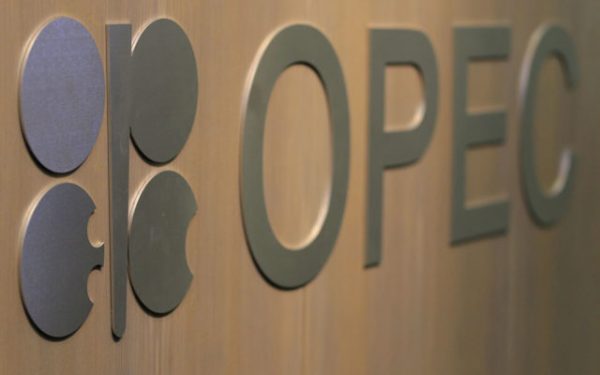OIL & GAS
Nigeria’s Oil Export Earnings Decline 21% Amid Rising Prices
Nigeria’s net oil export earnings this year (between January and July), have declined by about 21 per cent compared to 2017 performance.
August 2018 data obtained from the Organization of Petroleum Exporting Countries (OPEC), showed that net oil export earnings of the country stood at $27billion for 2018 (January to July) while 2017 figure was $34billion.
Meanwhile, real revenue per capita from Nigeria’s crude oil exports is currently the lowest among members of OPEC at $132 per Nigerian.Qatar emerged the best in OPEC’s per capita net oil export revenues with a threshold of $8,320, according to the August 2018 data.
The EIA’s projection of just over $1,400 of revenue for each person in the OPEC countries this year is similar to what it was in 2004 (just over $1,250 in real terms). Back then, though, Brent crude oil averaged about $50 a barrel in real terms against a projection of almost $72 this year.However, the World Bank projects OPEC’s population to rise by another 129 million by 2030.
Nigeria’s per-capita oil-export income last year was just $179, the lowest in the group and a mere 1.5 per cent of Qatar’s, which led with almost $12,000 per person.In absolute terms, Nigeria will account for more than half the expected increase in OPEC’s population by 2030, according to the report.
So far in 2018, Saudi Arabia has posted net oil export earnings $130billion, among OPEC members.
The United States Energy Information Administration (EIA) estimates that members of OPEC earned about $567 billion in net oil export revenues (unadjusted for inflation) in 2017.The 2017 net oil export revenues increased by 29 per cent from the $441billion earned in 2016, mainly as a result of the increase in average annual crude oil prices during the year and the increase in OPEC net oil exports.
Saudi Arabia accounted for the largest share of total OPEC earnings, $167 billion in 2017, representing nearly one-third of total OPEC oil revenues.
EIA expects that OPEC net oil export revenues will rise to about $736 billion (unadjusted for inflation) in 2018, based on forecasts of global oil prices and OPEC production levels in EIA’s August 2018 Short-Term Energy Outlook (STEO).
On a per capita basis, OPEC net oil export earnings are expected to increase by 27 per cent, from $1,147 in 2017 to $1,459 in 2018.The expected increase in OPEC’s net export earnings is attributed to higher forecast annual crude oil prices in 2018 compared with 2017 despite expected lower output during 2018.EIA’s August 2018 STEO forecasts that OPEC crude oil production will average 32.3 million barrels per day (b/d) in 2018, 0.3 million barrels per day lower than in 2017.
For 2019, OPEC revenues are expected to be $719 billion, as a result of lower forecast crude oil prices. Slightly lower OPEC production and exports also contribute to the decline in expected earnings.






